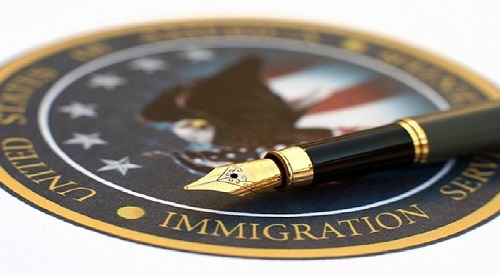E-1 Visas For Traders & E-2 Visas For Investors

Purpose Of E Visa Classification
The E classification is for foreign nationals engaged in international trade or investment between the United States and the foreign worker’s country of nationality. To qualify for an E Visa, the foreign worker’s country of nationality must have a Bilateral Investment Treaty, Treaty of Friendship, Commerce, or Navigation or another qualifying treaty with the United States.
Many countries have trade or investment treaties, or both, with the United States. The following are some of the countries have both types of treaties: Australia; Canada; France; Germany; Italy; Japan; Korea; Mexico; Pakistan; Philippines; Singapore; Taiwan; Sweden; Switzerland; Thailand; and the United Kingdom.
There are two classifications of E Visas. The E-1 Visa is for foreign workers coming to the United States solely to engage in substantial trade between the country of the foreign worker’s nationality and the United States (E-1 Treaty Trader). The E-2 Visa is for foreign workers coming to the United States solely to direct and develop the operations of an enterprise in which the foreign worker has invested, or is in the process of investing, a substantial amount of money.
The length of time E Visas are issued for depends on the length of time the E Visa applicant’s country of nationality typically grants to U.S. citizens. Typically the maximum period is five years. E Visas may be extended indefinitely, as long as E Visa holder’s do not violate the terms of their status.
E-1 Visa For Treaty Traders
The E-1 Treaty Trader Visa classification allows foreign workers to travel to the United States to engage in substantial trade in goods, services, or technology. Usually an E-1 applicant must show that trade already exists as of the date of the E-1 applicant’s Visa application. However, an E-1 applicant may be able to qualify for a Visa by presenting binding contracts calling for immediate trade.
To qualify for an E-1 Visa:
- The applicant must be a national of a country with whom the U.S. has an E-1 treaty;
- The applicant must have the same nationality as the principal employer;
- The applicant must be employed in an executive or supervisory capacity or have special qualifications that make the applicant’s services “essential to the efficient operation of the enterprise;”
- The principal employer must be at least 50 percent owned by persons or entities with the same nationality as the treaty country;
- The applicant must be coming to the U.S. for the purposes of trade, defined as “the existing international exchange of items of trade for consideration between the U.S. and the treaty country;”
- The trade must be substantial, meaning “an amount of trade sufficient to insure a continuous flow of international trade between the U.S. and the treaty country;” and
- The trade must be principally between the U.S. and the treaty country.
- Trade is deemed to be principally between the U.S. and the treaty country when over 50 percent of the volume of international trade conducted by the treaty applicant is between the U.S. and the treaty country.
E-2 Visa For Treaty Investors
The E-2 Treaty Investor Visa classification allows foreign workers to travel to the United States to direct and develop the operations of an enterprise in which the foreign worker has invested, or is in the process of investing, a substantial amount of money.
To qualify for an E-2 iVsa:
- The applicant must be a national of a country with whom the U.S. has an E-2 treaty;
- The applicant must have the same nationality as the principal foreign employer;
- The applicant must direct or develop the enterprise;
- The applicant must manage the enterprise and show ownership of at least 50 percent of the enterprise.
- The applicant must have invested, or be in the process of investing, a substantial amount of money in the enterprise;
- The investment must be substantial;
To determine if the investment is substantial, the consular officer will look at the amount of the investment versus the total cost of purchasing or creating the enterprise; - the amount normally considered sufficient to ensure the applicant’s commitment to the successful operation of the enterprise; and
- whether the investment is large enough that it is likely that the applicant will successfully direct and develop the enterprise.
- The investment must be at risk, meaning that it is subject to partial or total loss if the enterprise fails;
- The investment must be in a commercial enterprise (not, for example, in stocks, undeveloped land, or non-profit institutions); and
- The investment must not be in a marginal enterprise.
- An enterprise is marginal if it does not have the present or future capacity to generate more than a minimal living for the applicant and the applicant’s family. Usually an applicant can prove an enterprise is not marginal by providing a five-year plan for the enterprise.

Applying For An E Visa
If the applicant is inside the United States, Form I-129, Petition for Nonimmigrant Worker, is used to apply for a change of status, extension of stay, or change of employment.
If the applicant is outside the United States, the applicant may apply for an E Visa on his or her own behalf (no petition or sponsorship from an employer is required) at a United States consulate abroad. Most consulates require applicants to complete Form DS-156E, Nonimmigrant Treaty Trader/Investor Application in addition to the Form DS-156, Nonimmigrant Visa Application.
Family Members Of E-2 Visa Holders
Spouses and unmarried children under the age of 21 are eligible to join the principal E Visa holder and are given the same classification as the principal. Spouses of E Visa holders may apply for an Employment Authorization Document by filing Form I-765 and may work in the United States. Children may not work in the United States but they may study.
Kate Lincoln-Goldfinch works on providing E-1/E-2 Visas to clients who are treaty traders /treaty investors.
If you or a loved one needs help with your Austin immigration case, contact attorney Kate Lincoln-Goldfinch today!


